it’s a dead-end for most “so-called” leaders
(Hanging Coffins, Echo Valley, Sagada, Mountain Province, Philippines – photo courtesy Trover)
(8 minute read)
Being in a position of leadership is not a qualification for being a leader; leadership positions are a dime-a-dozen, leaders are as rare as the humility and wisdom that guides their lives.
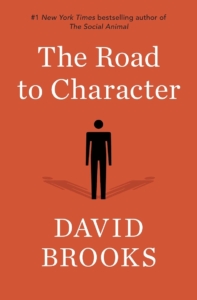 David Brooks, in his excellent book, The Road to Character, uses the eulogy as a metaphor for explaining some of the important attributes of character. He writes that “eulogy virtues are more important than resume virtues” because they represent the essence of what people will say about us after were gone – we were honest, caring, kind, trustworthy, brave, faithful, loving, not that we were a president, prime minister, mayor or a PhD. Brooks points out that most of us have a clear strategy for achieving career success but few have a strategy for building great character. We spend years developing abilities while ignoring our true self-worth, never exploring our deepest values and creating purpose, principles and structure for living. He says, “You find yourself doing things that other people approve of, whether these things are right for you or not.”
David Brooks, in his excellent book, The Road to Character, uses the eulogy as a metaphor for explaining some of the important attributes of character. He writes that “eulogy virtues are more important than resume virtues” because they represent the essence of what people will say about us after were gone – we were honest, caring, kind, trustworthy, brave, faithful, loving, not that we were a president, prime minister, mayor or a PhD. Brooks points out that most of us have a clear strategy for achieving career success but few have a strategy for building great character. We spend years developing abilities while ignoring our true self-worth, never exploring our deepest values and creating purpose, principles and structure for living. He says, “You find yourself doing things that other people approve of, whether these things are right for you or not.”
“Success leads to the greatest failure, which is pride. Failure leads to the greatest success, which is humility and learning.” – David Brooks, The Road to Character
The world has had great people, with great character, but in recent times there seems to be a dearth of leaders who have even a smattering of character. They are not to be found in the places where we need them most.
Is leadership about making the world a better place for your tribe or is about making it a better place for all tribes? History tells us that the vast majority of leaders have only been interested in their own tribe, and within the tribe, primarily for themselves. It’s the main source of foreign and civil wars, which might be the most insidious of human failures. Today, the tribal mentally continues and even though we’re simply different tribes of the same species, we’re divided irreparably, and cursed to an existence of inevitable war. Are we only here to determine which nation or race is the last tribe standing?
“History is the map of human character. To know how man will act you must know how man has acted.” – Will & Ariel Durant, The Lessons of History
The New York Times reported that over the past 3,400 years, the world has been entirely at peace for only 268 of them, or just 8 percent of recorded history. And, in the twentieth century alone, at least 108 million people have been killed in wars. Estimates for the total number killed in wars throughout all of human history range from 150 million to 1 billion. WWI killed more than 20 million. WWII over 50 million. A common denominator in this horrific self-destruction is a the lack of character in political leaders. Can you imagine what it might have been like if we had had several dozen leaders around the world, leading nations, like Mahatma Gandhi, Nelson Mandela, Dr. Matrin Luther King Jr. and the Dali Lama?
War what is it good for?
Those of us who lived during the time of the Vietnam War (three million were killed in Vietnam), will remember the 1967 protest song by Edwin Starr, War?
“War, huh, yeah
What is it good for?
Absolutely nothing.”
Well, long before Starr recorded his big hit, Charles Darwin and history told us that we humans are genetically predisposed to tribalism and war, rooted in self-interest and violence. Whether it be between nations or within communities, these genetic and tribal biases have only been overcome by a handful of great leaders, and even then, only temporarily.
Even the greatest thinkers can’t stop war
Across history, there is a laudable list of great men and women who have waged war against war and inhumanity, and a few have managed to leave the world in better shape than before they came but inevitably, like waves destroy sandcastles, the human tide of self-interests have overwhelmed altruistic gains and we continue to whistle past the graveyards, clinging to the sandcastles of hope and faith.
“I believe that man is infinitely potential, and that given the proper guidance there is hardly a task he cannot perform or a degree of mastery in work and love he cannot attain.” – Rabbi Joshua Liebman, author of Peace of Mind (1946).
Perhaps, back in 1946, Rabbi Liebman, had an overly optimistic view, especially just after the most heinous war crimes in history against the Jewish people. But humankind has not lived up to the rabbi’s assessment of human potential and today there is such a dearth of “mastery in work and love” that one has to ask: Why have such masters not risen to prominence? Why is there such a vacuum of leadership as we stumble over the threshold of the 21st century with the prospects of war, and annihilation, perhaps greater than ever before?
Is the problem the actors or the theatre?
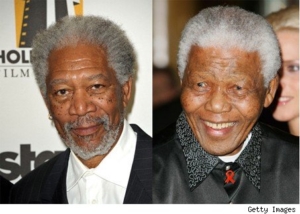
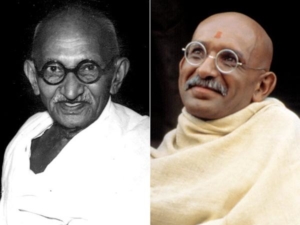 Why do we continue to regurgitate an endless lineup of so-called leaders who are average doppelgangers, looking just like the last bunch? The same bad actors, reading from the same bad script. There have been few true leaders in the last century and the best we can do to further their higher purpose is create movies with actors striving to make a windfall.
Why do we continue to regurgitate an endless lineup of so-called leaders who are average doppelgangers, looking just like the last bunch? The same bad actors, reading from the same bad script. There have been few true leaders in the last century and the best we can do to further their higher purpose is create movies with actors striving to make a windfall.
Perhaps the problem is not the leaders and their capability, it’s the theatre of civilization in which they have to perform, a stage on which leadership of the highest purpose cannot thrive?
We’ve had great men and women of great character, but they’ve always had to work in an environment, a place and setting, in which their extraordinary gifts could not generate enough lasting results. To stretch the metaphor, they could build sandcastles out of values, morals and aspirations, but the sea of human self-interests would not allow them to convert their hope and faith into sustained good will and peace. Jesus and Mohammad propagated movements of hope and faith and spread them around the world and yet, they could never end wars. In fact, collectively, religions have been behind much of the mass extermination of humans.
“We humans are capable of greatness … but we are making a mess of our planet and becoming a danger to ourselves.” – Carl Sagan
For a quick historical review of the mess we continue to perpetuate, watch Carl Sagan’s excellent 3:30 minute video, The Pale Blue Dot.
Is humanity’s scaffolding too rickety?
Now, with a few thousand years of recorded history and self-reflection under our belt, we can begin to see that the scaffolding built by our ancestors, and on which we stand today, is not what we think it is. Yes, it’s still an “experiment.” Yes, it’s still flawed. Yes, we’re getting better – maybe? But, despite great material, medical and technological advancement, we sure as hell are doing something wrong, and repeating our inhumane behavior, over and over. Charles Darwin has given us an abundance of evidence in support of the hypothesis that the human species does not have the required genetic foundation on which to construct a truly good and moral civilization. When push comes to shove, survival of the fittest is the driving force.
“Over the course of history, human behavior has changed, but not human nature.” – Will & Ariel Durant
Across history, countless leaders have preached the “good word,” spoken of a “better world,” written about “Utopia,” and given us the “how to” … but few have delivered. It’s obvious we haven’t figured out yet how to create a world in which tribes and their tribal leaders can lead us “to the promise land” – to paraphrase the teachings of Jesus, Mohammad and Dr. Martin Luther King Jr. The foundation of humanity is as rickety and insecure as it has always been.
The world stage, as constructed so far, is too unstable for great men to create great societies (Lyndon Johnson’s “Great Society” was just a political bumper sticker). In fact, it can be argued that there’s no stage ready for greatness, no opportunity to design a platform on which extraordinary leadership can flourish. Because the political and corporate environs are designed for the “invisible hand” of commerce, and leaders in such positions succumb to barter, trade, manipulation, misconduct, maleficence, all of which are driven by self-interest. In short, the marketplace and public square are not places where extraordinary leaders – ethical, moral, reflective, wise – can fulfill their purpose. I leave religion out of this conversation because it is a whole theatre onto itself, but suffice it to say, it too has failed, miserably.
“Cooperation is a form of competition. We cooperate within our group, family, community, and nation in order to make our group more powerful.” – Will & Ariel Durant
History, from Plato to Einstein, demonstrates that not enough of humanity has the will and capacity to study, understand, heed and follow true leadership. This lack of will is innate in our genetic blueprint. Our selfish genes dominate our altruistic genes when faced with competitive choices. Darwin scientifically revealed it, Durant literally recorded it, and Einstein experienced it, first-hand.
Even the great are ignored: Einstein and Freud
“Albert Einstein was not only a great scientist but a great man.”– Bertrand Russell
Those who have read about Einstein know the veracity in Bertrand Russell’s statement, and that beyond his genius, he dedicated much of his life and thinking to what he once called, “the greatest of all causes – good will among men and peace on earth.” I would add that the “good will” without the strength of will, is simply a latent hope.
Einstein was a man of character, of course, flawed like all of us, but nonetheless, a man of greatness. In 1914, at age thirty-five – already having revealed his theory of relativity – he rebelled against the horror of WWI and lamented that he belonged to the “rotten” species of man. Thereafter, he committed to a lifetime of achieving world peace. In 1931-32, he corresponded with Sigmund Freud, in an attempt to a better understand human behavior, and to find a means to counter the human propensity for violence, war and the annihilation of the species. He and Freud exchanged numerous letters expressing their mutual concern about whether humankind could survive its own deficiencies. Einstein asked Freud for insight into the aggressive and destructive instincts embedded in the human psyche, despite a seeming love and lust for life.
“It would appear that the very domain of human activity most crucial to the fate of nations is inescapably in the hands of wholly irresponsible political rulers.” – Albert Einstein to Sigmund Freud, 1931
Einstein wanted to establish, “a free association of men whose previous work and achievements offer a guarantee of their ability and integrity.” And yet, here we are, almost ninety years later, and no such “guarantee” of capable leaders has been forthcoming. Perhaps because it is impossible? If two geniuses like Einstein and Freud can’t figure out how to make it happen, who can?
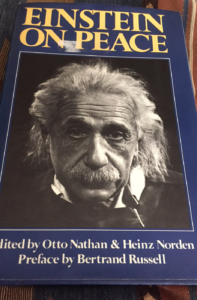 The essence of Einstein’s lifelong beliefs is captured in the book, Einstein on Peace. He stated, “Man must come to recognize that his fate is linked with his fellow men throughout the world … and that in the shadow of the atomic bomb, it has become even more apparent that all men are, indeed brothers … and if we act on this simple truth, mankind may develop to a higher level of human development.” We certainly don’t see any international band of brothers coalescing around Einstein’s aspiration and the reality of his “simple truth” remains mythology. Darwin might label Einstein’s expectation of a “higher level of human development” as a theory of irrelativity – contending it can’t be done in this, our embryonic, stage of evolution.
The essence of Einstein’s lifelong beliefs is captured in the book, Einstein on Peace. He stated, “Man must come to recognize that his fate is linked with his fellow men throughout the world … and that in the shadow of the atomic bomb, it has become even more apparent that all men are, indeed brothers … and if we act on this simple truth, mankind may develop to a higher level of human development.” We certainly don’t see any international band of brothers coalescing around Einstein’s aspiration and the reality of his “simple truth” remains mythology. Darwin might label Einstein’s expectation of a “higher level of human development” as a theory of irrelativity – contending it can’t be done in this, our embryonic, stage of evolution.
If the only two available theatres for extraordinary leaders to perform in are politics and commerce, then Plato and Darwin were closer in understanding the lack of hope for humanity than Einstein and Freud.
Plato “guaranteed” we’d fail
Plato’s Republic, written over 2,400 years ago, was prescient in that Socrates set out fundamental questions about the legitimacy of democracy and warned how selfish people’s penchant for greed and power would just create a slippery slope to autocracy and tyranny. He claimed that democracies would never attract leaders who were capable or moral enough to use power altruistically. And we have proven him right.
Just pause for a moment, and place what’s going on in today’s world in the context that Plato developed 2,400 years ago, and contemplate our utter lack of progress toward Einstein’s hope for a “higher level of human development.” We are failing. And Darwin would say, “I told you so.”
“You’ve got 40 million Americans living in poverty. That’s a very large percentage [much higher than many developed countries], something like 14 percent of the population.” – Philip Alston
The list of failed leadership is endless. Politically, that failure is abysmal, especially if we count the death and destruction from war and the unconscionable inequality between rich and poor. And in the corporate world, whether it’s been Alfred Sloan, Ken Lay, Jack Welch, Jeff Bezos, Meg Whitman or Mark Zuckerberg … it’s obvious, few ‘get it.’ Or are at all interested. And few have likely read much of Plato, Darwin, Einstein or the other book by Adam Smith, The Theory of Moral Sentiments.
“It is from him only [a great leader] that we learn the littleness of ourselves … and the propriety of resigning the greatest interests of our own for the yet greater interest of others … and the love of what is honourable and noble, of grandeur, and dignity, and superiority of our own character.” – Adam Smith, The Theory of Moral Sentiments.
Smith, known for his economic treatise, The Wealth of Nations, 15 years earlier (1759) wrote about the human capacity for altruism and benevolence. He saw the goal of a highly moral and virtuous life far more important then the self-interest, pursuit of economic gain, beyond the basic necessities. He recognized the downside of the “invisible hand” of self-interest and greed, something most trickle-down-economic proponents have never studied, or admitted. Smith addressed the nature of human nature, and then connected it to economic behavior, concluding that humans are not capable –despite his wishful thinking – of acting with higher purpose, values and morals, especially when faced with making a choice between what’s right and their self-interests. A hundred years later, Darwin scientifically confirmed the genetic foundation of Smith’s sentiments, and today, the architecture of the world functions on the innate conflict between self-interest and altruism.
The political and economic cornerstones of our civilization represent this inherent conflict and have not, and cannot, provide the requisite structure on which great leaders can build and sustain human advancement. Not technological and medical advancement, rather the advancement of what Smith called the “spirit of the system,” “the public spirit,” “the love of humanity.” The only possible rationalization we could come up with – perhaps a cop out? – is that 2,400 years is but a tiny blip on the evolutionary calendar of our species, and we need more time to get it right.
“Nothing that is worth doing can be achieved in our lifetime.” – Reinhold Niebuhr
Until we create the requisite foundation – stage, platform, principles – based on the realities of human nature, and then anchor our economic and political systems to it, not much is likely to change, any time soon. And until more leaders read and understand the fundamental theories, discoveries and principles offered by Plato, Darwin, Smith, Einstein and Freud, we are destined to repeat the history of failed leadership, over and over … trying, senselessly, to “make it great again,” when in fact, it never has been great.
Perhaps we just don’t have the capability to do it?
Recommended reading for inspired, aspiring and failed leaders
(click to buy)


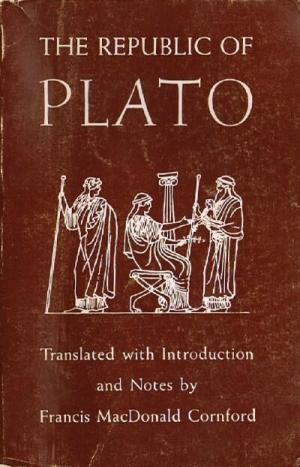
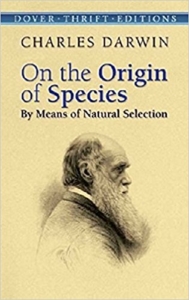
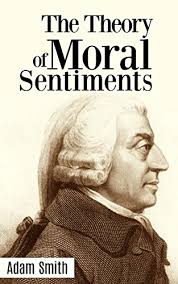
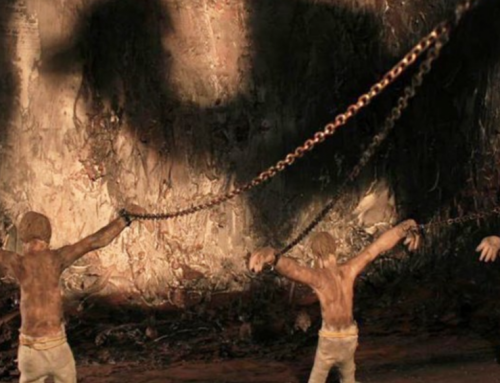

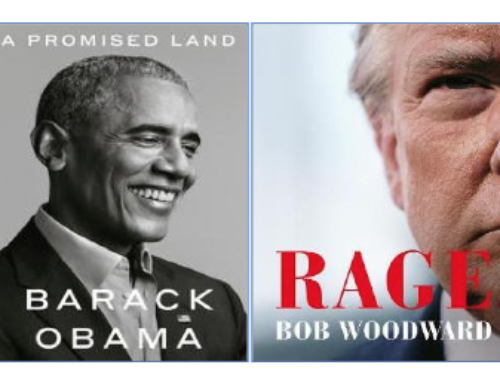
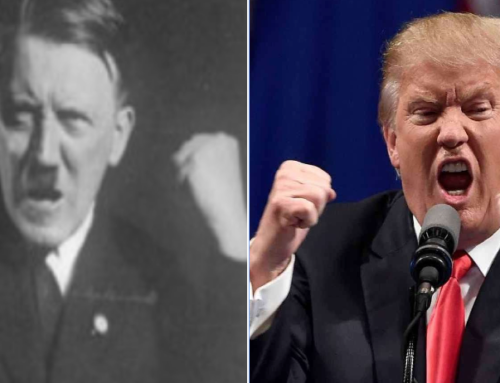
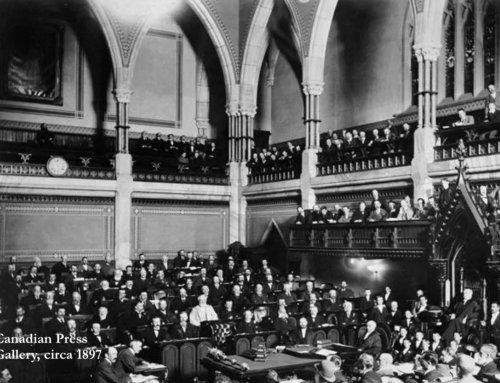
Leave A Comment